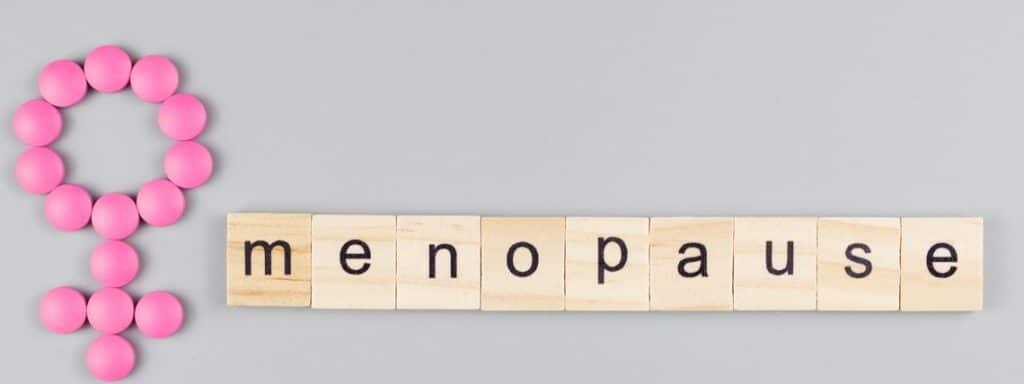Table of Contents
Testosterone is usually thought of as being a hormone that only men need. The fact is that it also plays an important role in the physiology of women. Throughout her lifetime, it is normal for a woman's testosterone levels to fluctuate.
It is normal for testosterone levels to change in a more significant way during puberty and again during menopause. However, it is not normal for women to experience extremely low levels of testosterone at any age.
If you suspect this problem is happening to you, there are safe therapies that can help you correct this imbalance. Ignoring this type of health issue can create a lower quality of life along with dangerous symptoms that can put your life at risk.

A consultation with an endocrine specialist that focuses on correcting hormonal imbalances is the first step for a woman to regain her vitality and quality of life. A hormonal imbalance is not something you can correct alone, you must seek the care of a health specialist.
How Are You Feeling?
Have you not been feeling like yourself lately? Perhaps you're experiencing unusual symptoms that are causing a difference in your daily life. Or, you just simply feel that something is off. A hormonal imbalance could be the cause of the symptoms you are having.
It is a real possibility that low testosterone levels could be the culprit of why you haven't been feeling like yourself lately. When a woman's testosterone levels are low, she will report having uncomfortable and debilitating symptoms in almost all aspects of her life.
From emotional health to musculoskeletal changes, low testosterone levels affect a woman and change her life in many ways.
This article will explore the causes, symptoms, and treatments for low testosterone levels in women. A woman does not have to bare the debilitating reality of having low testosterone levels.
Fortunately, modern medicine is giving us the opportunity to address this problem easily so that we can get back to living our best lives.

The Role of Testosterone in Women
Unlike what you commonly hear, testosterone is just as essential for a woman's physiology as it is for men. Women manufacture testosterone in their ovaries and adrenal glands. This important androgenic hormone helps women carry out vital functions of everyday physiology.
These are some of the important functions of testosterone in a woman's life:
- Helps maintain a healthy cardiovascular system
- Regulates mood and emotional health
- Plays a key role in the development of bone and muscle tissue
- Keeps body fat at healthy levels
- Supports reproductive system
- Enhances the body's overall lean muscle mass
- Helps maintain a healthy libido and levels of stamina
- Helps menopausal women prevent vaginal atrophy
Now you can see why testosterone plays such an important role in a woman's life. Just about every aspect of her life is affected by this essential hormone. Her physical, mental, and emotional health depend on it.
There's no doubt that testosterone levels must be in balance to maintain overall good health.
We will discuss why women can have low testosterone, what symptoms to watch out for, and how to treat this condition. When it comes to maintaining hormonal balance, we are lucky to now have accessible solutions. There's much hope for this type of health issue.
What Can Cause Low Testosterone in Women?
There are various reasons why women may experience low levels of testosterone. Some of the possible causes include:
- Tumors in the pituitary gland and other glands
- Long-term hormonal therapy such as oral birth control
- Ovarian disease from illnesses, radiation, chemotherapy, or menopause.
- Medications for hypertension, opiates or others
Symptoms of Testosterone Deficiency
Women experience short-term and long-term symptoms due to low levels of testosterone. Short-term symptoms can include low sexual drive, weight gain, changes in mood, low energy, and other dysfunctions.
Long-term symptoms can include dysfunction of the cardiovascular system, decreased bone density with frequent fractures, loss of memory, mental fog, decreased muscular strength.
Other signs of low testosterone may include:
- Anxiety, depression, trouble sleeping
- Hair loss or thinning
- Changes in skin, dryness or discoloration
- Decreased muscle tone and mass
- Increased levels of overall body fat
- Decreased muscular strength and vitality
- Sexual dysfunction including pain during sex and vaginal dryness
- Easily fatigued or loss of motivation and energy
Diagnosing Low Testosterone Levels
It is more common for women to experience low levels of testosterone than an elevated state. Oftentimes, women manifest with depression, stress, symptoms of menopause, or a feeling of sensing that there's something wrong, but not being able to figure out why.
Whenever you don't feel like yourself for any reason, it is best to investigate more thoroughly. A hormone specialist will be able to detect the hormonal imbalance that may be causing your symptoms.
A blood test will verify if your testosterone levels are low. Once the physician confirms your low testosterone levels, a customized therapy will help you correct the imbalance.
Treating Low Testosterone Levels
It is common for women to suffer from low levels of testosterone during menopause. They are able to achieve balance by doing therapy with bioidentical hormones. It is a common therapy amongst menopausal women. There's a large quantity of clinical research to back up with therapy.
Hormone replacement therapy has helped many women increase their testosterone levels and get rid of the symptoms associated with it. This type of therapy has proven to alleviate short and long-term symptoms.
A customized plan not only includes the hormone replacement therapy, but also a nutritional program, an exercise plan, emotional counseling, and a stress management plan.
A hormone specialist or endocrinologist will be able to figure out if testosterone is the only hormone that needs to be replaced. Sometimes, hormone replacement therapy includes a cocktail of different hormones that the body needs to regain balance.
Modern medical tools allow physicians to monitor your status closely as the therapy progresses. Your therapy should be modified as your body regains its balance. A good doctor will reassess often and change the therapy as your body changes.
Never self-medicate or try to treat your low testosterone levels without a physician. There are plenty of products on the market that are promoted online that promise to keep your hormones in good balance. However, treating such a problem requires close monitoring of bloodwork and a physician's experience. It is never a good idea to treat the problem on your own.

Why Choose Hormone Replacement Therapy?
There are many benefits of taking care of your low testosterone levels with hormone replacement therapy. Once your body regains its hormonal balance, you should feel a new sense of renewal with increased levels of energy and stamina.
Your sexual drive will improve, you will experience a more efficient metabolism, increased levels of fitness with more strength, and higher bone density. Once you start hormone replacement therapy you should feel an overall better sense of well-being.
Other benefits of hormonal balance include:
- Stable mood and emotions even during menstruation and menopause
- Higher levels of physical endurance
- Enhanced physical performance
- Better sleep
- Less anxiety
Does Hormone Replacement Therapy Have Side Effects?
When you treat your hormonal imbalance under the supervision of a physician, you have a better chance of not experiencing any side effects from the therapy. A good doctor will choose the lowest possible dosage for the least amount of time.
Each body is unique and must have a customized therapy plan. Close monitoring by a physician will ensure you don't experience uncomfortable side effects from your treatment.
Speak with your physician if the therapy causes excessive headaches, nausea, lack of sleep, changes in body hair, cardiovascular symptoms, or if you notice anything out of the ordinary.
Normally, women who use hormone replacement therapy under the supervision of a doctor don't experience significant side effects.
What's Next?
Now that you know the possible symptoms, causes, and treatment options for low testosterone, you should consult a doctor immediately if you suspect you are suffering from any type of hormonal imbalance or low levels of testosterone.
Ask about bioidentical hormonal therapy as an option. You should seek an experienced doctor that specializes in hormonal imbalances and can obtain bloodwork to confirm your condition.
There are many state-of-the-art clinics dedicated solely to helping women regain hormonal balance with customized therapies. Pay attention to your body and its signs, you are the first line of information of knowing what could be troubling you.
Low testosterone levels are easily corrected in most cases. The sooner you catch the problem, the higher the chances you will have at regaining balance and experiencing a higher state of well-being.
References

